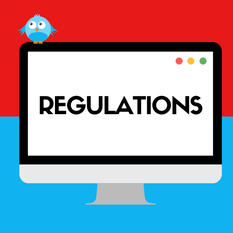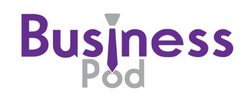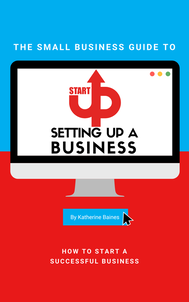Regulations

Most businesses will have various regulations that they will need to comply with, and need insurance to cover them in case things go wrong! In this sections we will cover, Legal issues, potential Licences needed, Insurances and Health & Safety.
Legal
Legal considerations include:
If you have any doubt about any legal issues, I recommend you get professional legal advice as it will be money well spent and could actually save you money in the long term.
Legal
Legal considerations include:
- Terms and conditions of trading, do you need to put T&Cs on your invoices or quotes to customers?
- Will you be taking on staff? If so, you will need employment contracts
- Will you be taking on premises? If so, you are likely to have to sign a lease which you potentially need to get looked over by a solicitor.
If you have any doubt about any legal issues, I recommend you get professional legal advice as it will be money well spent and could actually save you money in the long term.

Licences, accreditation, and qualifications
Some businesses need licences and accreditation before they can start to trade. For example, if you are a chartered accountant you need a practicing licence before you can set up on your own, if you are a hairdresser or beauty therapist to run a successful business and for insurance purposes you are likely to need to be trained to a certain standard.
Consider if there are there any additional qualifications you may need down the line to be able to expand your business, or take it to the next level, and therefore the time and cost of doing the additional qualifications should be taken into account.
With regard to accreditation, consider if there are any organisations that you would want to be associated with that will give you the stamp of approval in your industry? E.g. if you are in the beauty industry would it be useful to be a member of the Beauty Guild? If you are a plumber would it be worth being accredited by Checkatrade?
Be careful though; ask yourself ‘Do you need it?’ When setting up a small business you have to constantly ask yourself do I need this item? What benefits will it bring me? Will it be worth the money? It is very easy to just spend, spend, spend and sometimes it isn’t needed, don’t think you need to have ‘this’ because I should, you should only buy or join something if you are going to get a tangible benefit or result from it.
Other regulation issues could include the need for licences from your local council. If you were going to be a street trader, or market stall holder then you are likely to need a licence. You can find out more about this at www.gov.uk/licence-finder , likewise if you are going to do dog-sitting from home you will need the council to approve your premises, and if you are in catering you will need to ensure your kitchen is up to standards.
Some businesses need licences and accreditation before they can start to trade. For example, if you are a chartered accountant you need a practicing licence before you can set up on your own, if you are a hairdresser or beauty therapist to run a successful business and for insurance purposes you are likely to need to be trained to a certain standard.
Consider if there are there any additional qualifications you may need down the line to be able to expand your business, or take it to the next level, and therefore the time and cost of doing the additional qualifications should be taken into account.
With regard to accreditation, consider if there are any organisations that you would want to be associated with that will give you the stamp of approval in your industry? E.g. if you are in the beauty industry would it be useful to be a member of the Beauty Guild? If you are a plumber would it be worth being accredited by Checkatrade?
Be careful though; ask yourself ‘Do you need it?’ When setting up a small business you have to constantly ask yourself do I need this item? What benefits will it bring me? Will it be worth the money? It is very easy to just spend, spend, spend and sometimes it isn’t needed, don’t think you need to have ‘this’ because I should, you should only buy or join something if you are going to get a tangible benefit or result from it.
Other regulation issues could include the need for licences from your local council. If you were going to be a street trader, or market stall holder then you are likely to need a licence. You can find out more about this at www.gov.uk/licence-finder , likewise if you are going to do dog-sitting from home you will need the council to approve your premises, and if you are in catering you will need to ensure your kitchen is up to standards.

Insurance
In today’s society insurance is a must, we all hope nothing will ever happen that means we need to make a claim, but you never know. It is better to be safe than sorry, and if you have appropriate cover then you have nothing to worry about if things do go horribly wrong for you.
Nowadays there are many ways to organise your insurance. If you just need basic Professional Indemnity Cover then you can probably do it online yourself, however, make sure you read all the small print. If you have any doubt on the cover you need, then my advice would be to speak to an insurance broker who would be able to advise you accordingly.
Other insurances to consider are, car insurance, if you intend to use your car for your business then you will need adjust your current insurance to cover business use, because if you have an accident and you are on company business you potentially will not be covered. Also consider your house insurance if you are going to work from home and you will be having people visit you at home, will your home insurance cover for public liability if someone injures themselves on your premises? Or will your business insurance cover you if someone has an accident on your property?
Here is a list of potential insurances that you may need to consider:
In today’s society insurance is a must, we all hope nothing will ever happen that means we need to make a claim, but you never know. It is better to be safe than sorry, and if you have appropriate cover then you have nothing to worry about if things do go horribly wrong for you.
Nowadays there are many ways to organise your insurance. If you just need basic Professional Indemnity Cover then you can probably do it online yourself, however, make sure you read all the small print. If you have any doubt on the cover you need, then my advice would be to speak to an insurance broker who would be able to advise you accordingly.
Other insurances to consider are, car insurance, if you intend to use your car for your business then you will need adjust your current insurance to cover business use, because if you have an accident and you are on company business you potentially will not be covered. Also consider your house insurance if you are going to work from home and you will be having people visit you at home, will your home insurance cover for public liability if someone injures themselves on your premises? Or will your business insurance cover you if someone has an accident on your property?
Here is a list of potential insurances that you may need to consider:
- Professional indemnity insurance, (also known as PI insurance), is a type of liability cover that is designed to protect you against claims made by clients for loss or damage due to negligent advice or services
- Public liability insurance would cover you against the cost of claims made by members of the public for incidents that happen in connection with your business such as personal injuries, death, loss or damage to property
- Vehicle insurance, by law if you own a car you need vehicle insurance to be able to use the vehicle, however are you covered for business use? Most vehicle insurance would cover you as Fully Comprehensive, or Third-Party Fire and Theft, however if you are going to be using your vehicle for business use you need to upgrade your policy to include business use accordingly.
- Buildings and property insurance will cover the buildings that you are renting or own, this is one to look at if you are going to be leasing premises as to whether it is your responsibility or your landlord to insure the building.
- Contents & equipment insurance is cover to protect the contents of your business premises, for example if there is a flood, or fire or burglary and you lose all your equipment.
- Product liability insurance will cover you if someone is injured by a faulty product that your business designs, manufactures or supplies.
- Data protection insurance is designed to protect businesses that hold, process or collect personal data in case the data gets lost or stolen, either accidentally or maliciously.
- Goods in transit insurance would cover you for loss or damage of stock being transported; sometimes this is offered direct by your supplier on a per shipment basis but check if applicable to your business.
- Directors’ and officers’ liability insurance covers the business’ directors for claims made about them for alleged wrongful acts such as breach of duty, error, wrongful trading etc.
- Employers liability insurance is a legal requirement for most business in the UK if you employ staff, as it covers the business in the event of an employee getting injured at work, you will also need this if you use subcontractors too.
- Cyber insurance covers you for a cyber-attack and other technology related risks, as well as privacy investigations following an attack
Health & Safety
You need to consider health and safety implications even if it is only you in the business. The HSE (Health and Safety Executive) provides an excellent source of information on all things health and safety. More information can be found at www.hse.gov.uk/simple-health-safety/index.htm
If you do employ staff or use subcontractors you will need to comply with the Health & Safety Act, and put procedures in place, such as completing Risk Assessments, and implementing a Health & Safety Policy.
There are many businesses out there that can help you implement your health and safety policies and procedures, however the hse.gov.uk is a great source of information.
You need to consider health and safety implications even if it is only you in the business. The HSE (Health and Safety Executive) provides an excellent source of information on all things health and safety. More information can be found at www.hse.gov.uk/simple-health-safety/index.htm
If you do employ staff or use subcontractors you will need to comply with the Health & Safety Act, and put procedures in place, such as completing Risk Assessments, and implementing a Health & Safety Policy.
There are many businesses out there that can help you implement your health and safety policies and procedures, however the hse.gov.uk is a great source of information.

